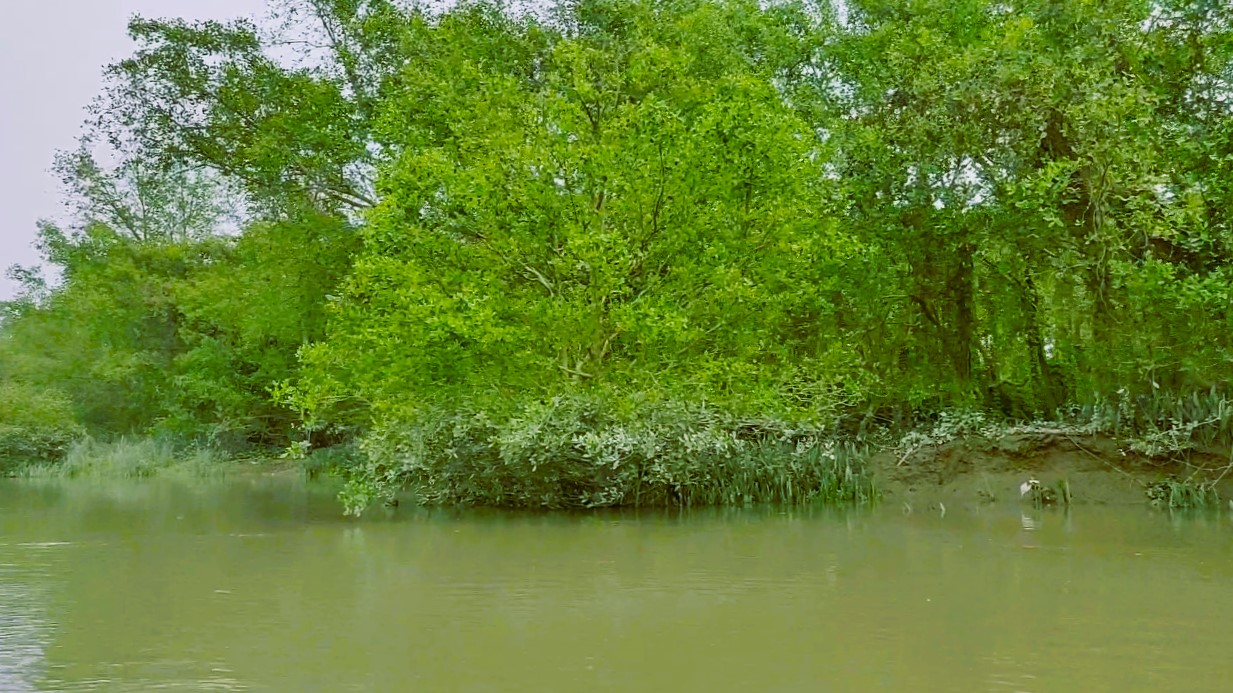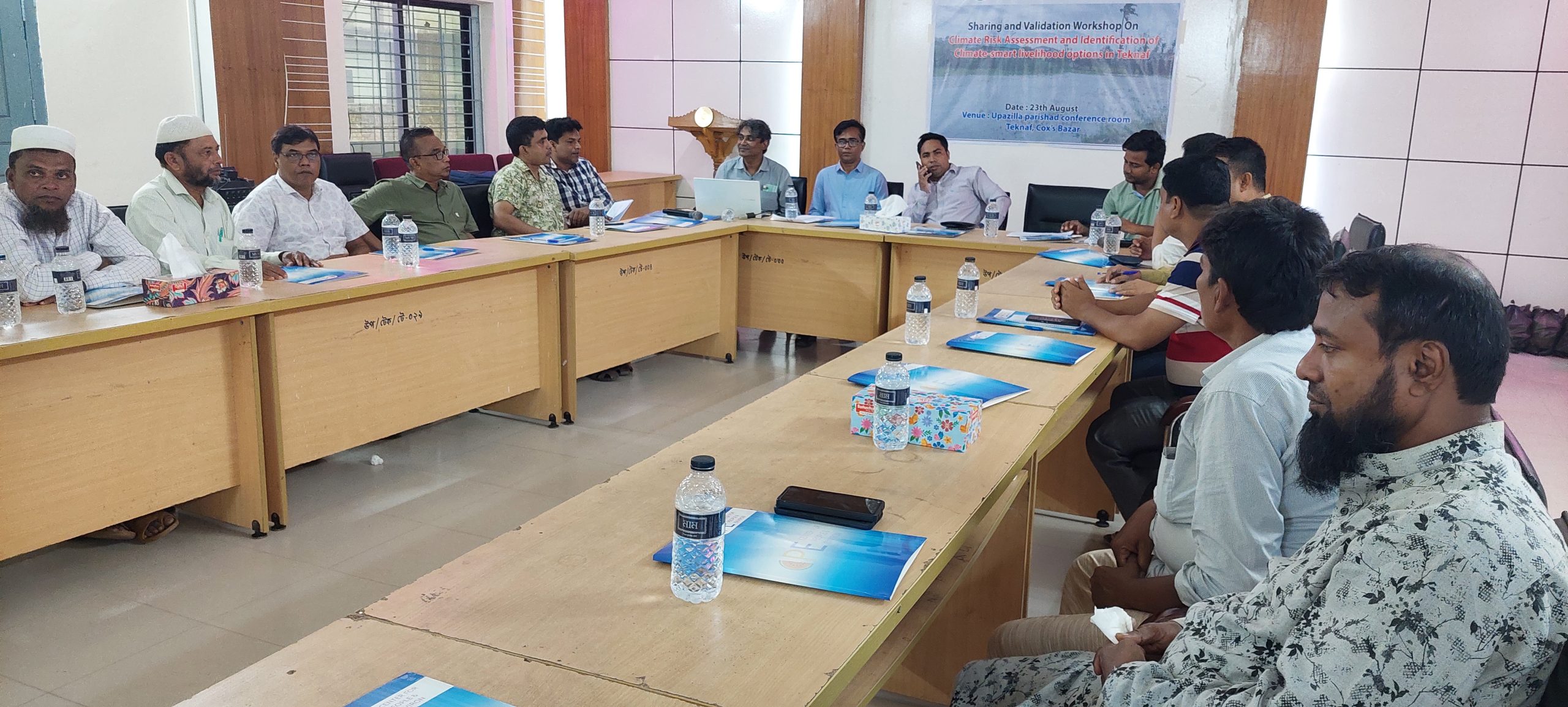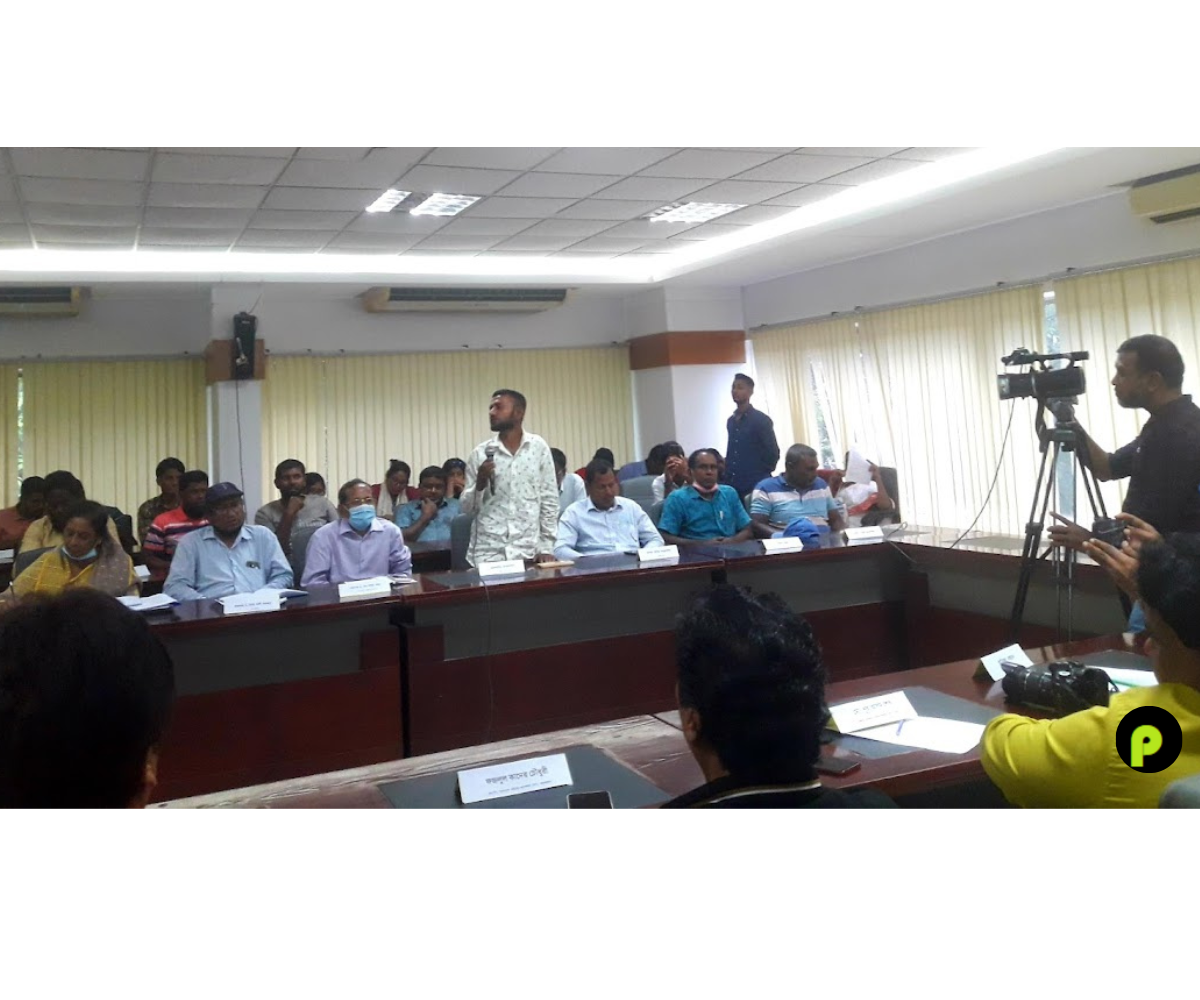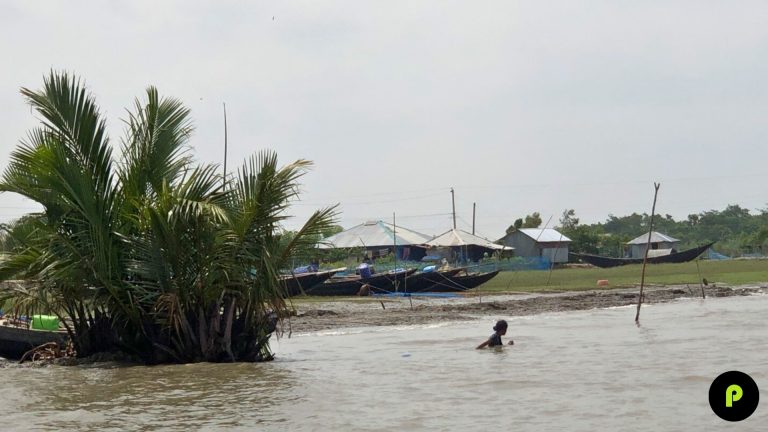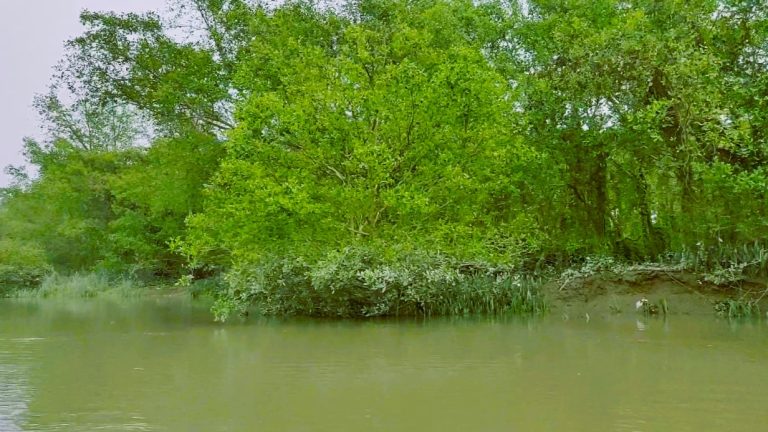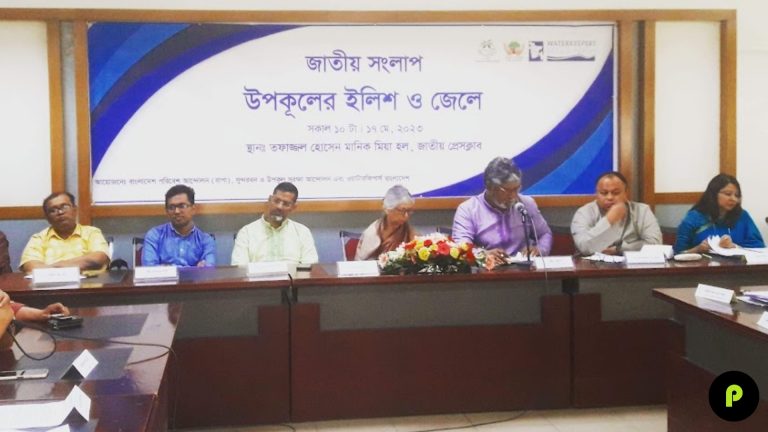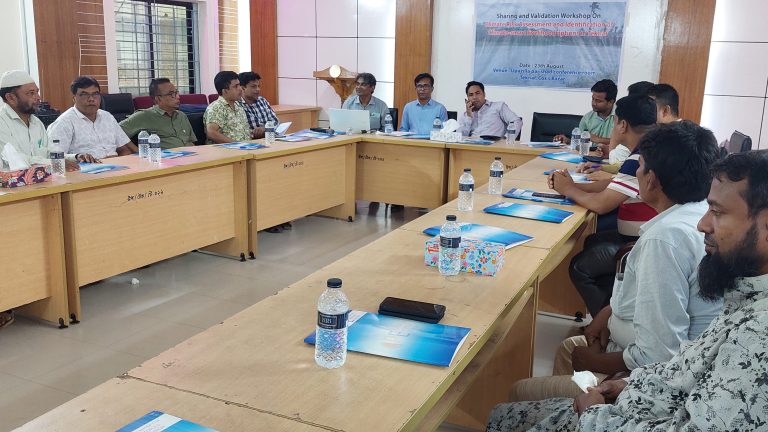Noor A Zannat Binta Mahfuz
"'A lot of girls are involved in fishing for minnows. Anemia, irregular period, extreme period cramps, nausea during periods, and vomiting are too common among them. Sometimes they suffer from periods for 2-3 months at a stretch to get rid of it they take birth control pills. The family cannot afford doctors, so they also take medicine without a prescription from the local pharmacy to halt it. Continuous period leads to anemia. Again, some have claimed that they do not get adequate and nutritious food due to financial insolvency, and their food has been contaminated by saline water as well which causes anemia and may halt women’s regular periods.''
45 years old Monjo Rani, mother of two sons came to the community clinic of Banishanta Union in Dacope Upazila. This is the 3rd time in this month she is suffering from diarrhea. She is not the only patient visiting the community clinic. Multipurpose Health Volunteers Tanusree and Etika of the community health clinic of Baniashanta Union informed us, the patient burden is increasing day by day and their medicine support exceeds capacity. Every day a lot of locals come to the clinic with problems like diarrhea, allergy, gastric, and hypertension. The number of patients is increasing with time.
According to the IPCC’s Fifth Assessment Report, the average global sea level rise by the end of the 21st century would be between 0.44 and 0.74 meters (m) (Church and Gregory, 2019). Even IPCC’s assessment report of the working group (iii) has mentioned the constant rise of sea level. Moreover, they recorded higher sea level rise in Asian coasts than global mean sea level rise. Bangladesh is one of them which has the most exposed coastal populations and is thus most susceptible to disaster-related death (IPCC, 2022). In recent years, frequent extreme, and severe cyclones along with storm surges have reshaped the region and caused saline water to spill into the streams, soil, and yield all around the low-lying people of the southwest coastal zone. Consumption of extremely saline water leads to diarrhea, hypertension, allergy, gastric, and even unbearable pain in the reproductive health of women. As a result, due to lack of supplies and increasing numbers of patients community clinics are running out of medicines and people like Monjo Rani are suffering.
Monjo Rani is not just a victim of Diarrhea, she is also suffering from a hysterectomy since she was around 26 years old. To support her family, she had to go to work on the sixth day of each week. She stated that “My husband and mother-in-law did not give me food to eat. They had asked me to earn my bread.” She was forced to go to catch minnows. There she had to stay in the salt water for the whole day to catch minnows. This results in an infection in her uterus. Monjo Rani utter that she needs to spend a huge amount of money, so she decided to remove her uterus. She also added that she is not alone, many other women and adolescents are suffering from such uterus problems for a long time. Though they are suffering but don’t have access to medical facilities. She also said that they don’t have nearby hospitals and they need to travel more than 1.5 hours for treatment. Even a huge number of mothers and their unborn children lose their life because of inadequate health facilities, roads, and transport systems.”
Monjo Rani utter that she needs to spend a huge amount of money, so she decided to remove her uterus. She also added that she is not alone, many other women and adolescents are suffering from such uterus problems for a long time.
Teenage girls also have to contribute to family earnings. Girls get married early because of their poor financial background. Mim is an 18-year-old girl who came with pre-eclampsia. Her father lost their house due to cyclone Amphan. On the other hand, he does not have an income source, so he has chosen to marry off his girl. A lot of girls are involved in fishing for minnows. Anemia, irregular period, extreme period cramps, nausea during periods, and vomiting are too common among them. Sometimes they suffer from periods for 2-3 months at a stretch to get rid of it they take birth control pills. The family cannot afford doctors, so they also take medicine without a prescription from the local pharmacy to halt it. Continuous period leads to anemia. Again, some have claimed that they do not get adequate and nutritious food due to financial insolvency, and their food has been contaminated by saline water as well which causes anemia and may halt women’s regular periods.
WHO has stated that the greatest threat to human health in the twenty-first century is climate change (WHO, 2021). Women are especially vulnerable to problems with their reproductive and sexual health as well as rising incidence of domestic and sexual violence, in addition to the general effects of natural hazards and a lack of disaster-resilient health care. Again, due to gender stereotypes, women are expected to take care of people affected by catastrophes, including children, the ill and injured, and the elderly, which adds to their mental and material burden. Here, all women are too strong to fight but not too healthy to live.

